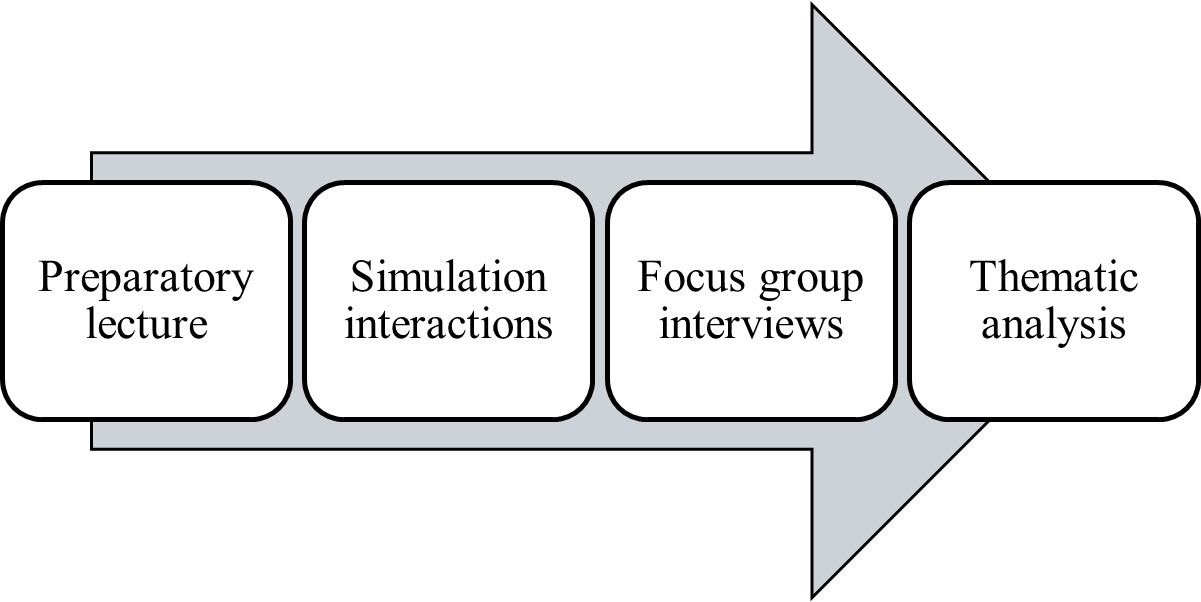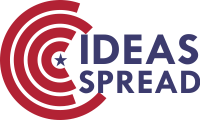Using virtual simulations with avatars to train preservice special educators’ relational competence toward students with neurodevelopmental conditions
Abstract
Teacher-student relationships (TSRs) involving students with neurodevelopmental conditions (NDCs) are challenging and tend to be of lower quality compared to those involving neurotypical students. The purpose of this study is to explore in what respects the use of avatar technology can support the development of preservice special educators’(PSEs) relational competence toward students with NDCs. We used two data sources: focus group interviews (n = 18) and screen observations of the interactions (n = 37). The findings show that PSEs perceive relational competence as situated competence, manifested in the teacher’s ability to establish positive and supportive relationships through identification and management of emotions and active listening and validation. PSEs’ relational competence is reflected in their capability to show patience, encouragement, empathy, sensitivity, involvement, understanding, validation, and interest in interactions with students. Overall, the findings suggest that avatar technology is a meaningful and relevant tool to support the development of PSEs’ relational competence with regard to students with NDCs.
References
Aspelin, J., Lindberg, S., Östlund, D., & Jönsson, A. (2024). Preservice Special Educators’ Relational Competence in Virtual Simulations with Avatars. The Teacher educator, 1-23. https://doi.org/10.1080/08878730.2024.2385381
Aspelin, J., & Östlund, D. (2020). Relationskompetens i specialpedagogiska utbildningar: hur framställs ämnet i kursplaner för specialpedagog- och speciallärarprogram i Sverige? [Relational competence in special education teacher training; in Swedish]. Educare, 2(2), 117-142. https://doi.org/10.24834/educare.2020.2.6
Aspelin, J., Östlund, D., & Jönsson, A. (2021a). 'It means everything': special educators' perceptions of relationships and relational competence. European journal of special needs education, 36(5), 671-685. https://doi.org/10.1080/08856257.2020.1783801
Aspelin, J., Östlund, D., & Jönsson, A. (2021b). Pre-service special educators’ understandings of relational competence. Frontiers in education, 6. 1-12. https://doi.org/10.3389/feduc.2021.678793
Borremans, L. F. N., Koomen, H. M. Y., & Spilt, J. L. (2024). Fostering teacher–student relationship-building competence: a three-year learning trajectory for initial pre-primary and primary teacher education. Frontiers in education, 9. https://doi.org/10.3389/feduc.2024.1349532
Braun, V., & Clarke, V. (2006). Using thematic analysis in psychology. Qualitative research in psychology, 3(2), 77-101. https://doi.org/10.1191/1478088706qp063oa
Clarke, V., & Braun, V. (2017). Thematic analysis. The journal of positive psychology, 12(3), 297-298. https://doi.org/10.1080/17439760.2016.1262613
Claudia, P. P.-S., Victoria, P., Fabiola, S.-D., & Himmbler, O. (2021). Influence of Teacher-Student Relationships and Special Educational Needs on Student Engagement and Disengagement: A Correlational study. Frontiers in psychology, 12. https://doi.org/10.3389/fpsyg.2021.708157
De Paoli, S. (2023). Can Large Language Models emulate an inductive Thematic Analysis of semi-structured interviews? An exploration and provocation on the limits of the approach and the model. Social Science Computer Review, 42(4), 997–1019. https://doi.org/10.48550/arXiv.2305.13014
Dieker, L. A., Rodriguez, J. A., Lignugaris/Kraft, B., Hynes, M. C., & Hughes, C. E. (2014). The Potential of Simulated Environments in Teacher Education: Current and Future Possibilities. Teacher education and special education, 37(1), 21-33. https://doi.org/10.1177/0888406413512683
Driver, M., Zimmer, K., & Murphy, K. (2018). Using Mixed Reality Simulations to Prepare Preservice Special Educators for Collaboration in Inclusive Settings. Journal of technology and teacher education, 26(1), 57-77. https://www.learntechlib.org/p/181153/
Ettekal, I., & Shi, Q. (2020). Developmental trajectories of teacher-student relationships and longitudinal associations with children's conduct problems from Grades 1 to 12. Journal of school psychology, 82, 17-35. https://doi.org/10.1016/j.jsp.2020.07.004
Evans, D., Butterworth, R., & Law, G. U. (2019). Understanding associations between perceptions of student behaviour, conflict representations in the teacher-student relationship and teachers’ emotional experiences. Teaching and teacher education, 82, 55-68. https://doi.org/10.1016/j.tate.2019.03.008
Ewe, L. P. (2019). ADHD Symptoms and the Teacher-Student Relationship: A Systematic Literature Review. Emotional & Behavioural Difficulties, 24(2), 136-155. https://doi.org/10.1080/13632752.2019.1597562
Ewe, L. P. (2022). Lärares relationskompetens i möte med elever med ADHD [Teachers’ relational competence in relation to students with ADHD; in Swedish]. [Doctoral dissertation, Malmö university]. https://doi.org/10.24834/isbn.9789178772759
Ewe, L. P., & Aspelin, J. (2022). Relational competence regarding students with ADHD - An intervention study with in-service teachers. European journal of special needs education, 37(2), 293-308. https://doi.org/10.1080/08856257.2021.1872999
Ewe, L. P., & Aspelin, J. (2024). Teachers' relational competence towards students with neurodevelopmental symptoms: a microscopic relational analysis. Journal of Research in Special Educational Needs. https://doi.org/10.1111/1471-3802.12721
Ewe, L. P., Holmqvist, M., & Bölte, S. (2023). Teachers’ relational competence: perceptions of teachers and students with and without ADHD and ASD. Emotional & Behavioural Difficulties, 28(2-3), 198-215. https://doi.org/10.1080/13632752.2023.2255426
Feldman, M., Maye, M., Levinson, S., Carter, A., Blacher, J., & Eisenhower, A. (2019). Student-teacher relationships of children with autism spectrum disorder: Distinct contributions of language domains. Research in developmental disabilities, 89, 94-104. https://doi.org/10.1016/j.ridd.2019.03.006
Gwernan-Jones, R., Moore, D. A., Cooper, P., Russell, A. E., Richardson, M., Rogers, M., Thompson-Coon, J., Stein, K., Ford, T. J., & Garside, R. (2016). A systematic review and synthesis of qualitative research: the influence of school context on symptoms of attention deficit hyperactivity disorder. Emotional & Behavioural Difficulties, 21(1), 83-100. https://doi.org/10.1080/13632752.2015.1120055
Göransson, K., Lindqvist, G., & Nilholm, C. (2015). Voices of special educators in Sweden: a total-population study. Educational research, 57(3), 287-304. https://doi.org/10.1080/00131881.2015.1056642
Howell, H., & Mikeska, J. N. (2021). Approximations of practice as a framework for understanding authenticity in simulations of teaching. Journal of research on technology in education, 53(1), 8-20. https://doi.org/10.1080/15391523.2020.1809033
Hudson, M. E., Voytecki, K. S., Owens, T. L., & Zhang, G. (2019). Preservice Teacher Experiences Implementing Classroom Management Practices through Mixed-Reality Simulations. Rural special education quarterly, 38(2), 79-94. https://doi.org/10.1177/8756870519841421
Jensen, E., Skibsted, E. B., & Christensen, M. V. (2015). Educating teachers focusing on the development of reflective and relational competences. Educational research for policy and practice, 14(3), 201-212. https://doi.org/10.1007/s10671-015-9185-0
Koenen, A.-K., Borremans, L. F. N., De Vroey, A., Kelchtermans, G., & Spilt, J. L. (2021). Strengthening Individual Teacher-Child Relationships: An Intervention Study Among Student Teachers in Special Education. Frontiers in education, 6. https://doi.org/10.3389/feduc.2021.769573
Levin, O., & Flavian, H. (2020). Simulation-based learning in the context of peer learning from the perspective of preservice teachers: a case study. European journal of teacher education, 45(3), 1-22. https://doi.org/10.1080/02619768.2020.1827391
Lindberg, S., & Jönsson, A. (2023). Preservice Teachers Training with Avatars: A Systematic Literature Review of 'Human-in-the-Loop' Simulations in Teacher Education and Special Education. Education sciences, 13(8), 817. https://doi.org/10.3390/educsci13080817
Losh, A., Bolourian, Y., Rodriguez, G., Eisenhower, A., & Blacher, J. (2022). Early student-teacher relationships and autism: Student perspectives and teacher concordance. Journal of applied developmental psychology, 79. https://doi.org/https://doi.org/10.1016/j.appdev.2022.101394
McGarr, O. (2021). The use of virtual simulations in teacher education to develop pre-service teachers' behaviour and classroom management skills: implications for reflective practice. Journal of education for teaching: JET, 47(2), 274-286. https://doi.org/10.1080/02607476.2020.1733398
Mikami, A. Y., Smit, S., & Johnston, C. (2019). Teacher attributions for children's attention‐deficit/hyperactivity disorder behaviors predict experiences with children and with classroom behavioral management in a summer program practicum. Psychology in the Schools, 56(6), 928-944. https://doi.org/10.1002/pits.22250
Nordenbo, S. E., Larsen, M. S. T., Neriman, Wendt, R. E., & Østergaard, S. (2008). Lærerkompetanser og elevers læring i førskole og skole: Et systematisk review utført for Kunnskapsdepartementet. [Teacher competencies and students’ learning in preshool and school; in Danish]. Dansk Clearinghouse for Uddannelsesforskning, Aarhus Universitet.
Peterson-Ahmad, M. (2018). Enhancing Pre-Service Special Educator Preparation through Combined Use of Virtual Simulation and Instructional Coaching. Education sciences, 8(1), 10. https://doi.org/10.3390/educsci8010010
Prino, L. E., Pasta, T., Gastaldi, F. G. M., & Longobardi, C. (2016). The Effect of Autism Spectrum Disorders, Down Syndrome, Specific Learning Disorders and Hyperactivity and Attention Deficits on the Student-Teacher Relationship. Electronic Journal of Research in Educational Psychology, 14(1), 89-106. https://doi.org/10.14204/ejrep.38.15043
Segerby, C. (2022). Exploring How a University Mathematics Teacher’s Digital Relational Competence Can Be Manifested: A Micro-Analytical Study. Education sciences, 12(4), 257. https://doi.org/10.3390/educsci12040257
Skibsted, E. B., & Matthiesen, N. (2016). Relationskompetencer i laereruddannelse og skole. [Relational Competence in Teacher Education and School; in Danish]. Dafolo.
Staff, A. I., Oosterlaan, J., van der Oord, S., de Swart, F., Imeraj, L., van den Hoofdakker, B. J., & Luman, M. (2023). Teacher Feedback, Student ADHD Behavior, and the Teacher–Student Relationship: Are These Related? School Mental Health, 15(1), 287-299. https://doi.org/10.1007/s12310-022-09550-1
Swedish Research Council (2024). Good research practice. https://www.vr.se/english/analysis/reports/our-reports/2017-08-31-good-research-practice.html
Theelen, H., van den Beemt, A., & Brok, P. d. (2019). Classroom simulations in teacher education to support preservice teachers’ interpersonal competence: A systematic literature review. Computers and education, 129, 14-26. https://doi.org/10.1016/j.compedu.2018.10.015
Willig, C. (2013). Introducing Qualitative Research in Psychology. McGraw-Hill Education.


This work is licensed under a Creative Commons Attribution 4.0 International License.
Copyright for this article is retained by the author(s), with first publication rights granted to the journal.
This is an open-access article distributed under the terms and conditions of the Creative Commons Attribution license (http://creativecommons.org/licenses/by/4.0/).








1.png)

















